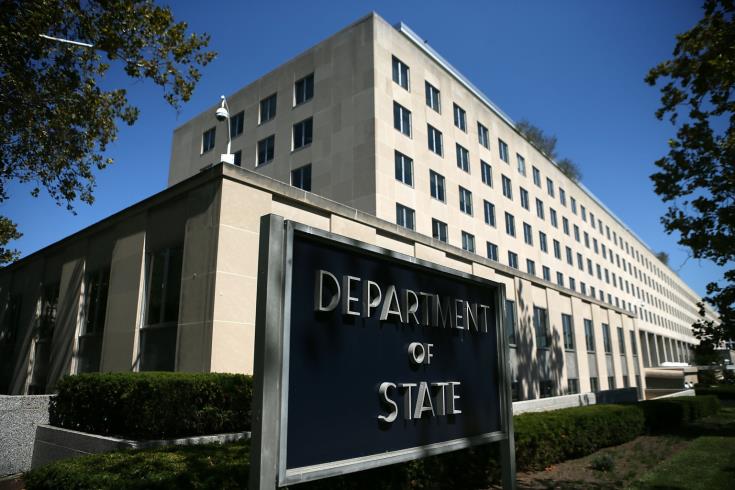Cyprus has an established an AML legal framework which it continues to upgrade, the US State Department notes in its latest money laundering report, but says that Cypriot financial system is vulnerable to money laundering by domestic and foreign criminal enterprises and individuals.
In its section on Cyprus, the report says that as a regional financial centre, Cyprus has a significant number of nonresident businesses.
At the end of 2017, a total of 217,588 companies were registered in Cyprus, many owned by nonresidents. By law, all companies registered in Cyprus must disclose their ultimate beneficial owners to the authorities.
The Cypriot financial system is vulnerable to money laundering by domestic and foreign criminal enterprises and individuals, although proceeds generated abroad pose a greater threat. Despite legal requirements to identify beneficial owners to government authorities, some Cypriot law and accounting firms help construct layered corporate entities to mask the identities of financial beneficiaries, it said.
The main criminal sources of illicit proceeds are investment fraud, corruption, advance fee fraud, tax evasion, illegal drugs, tobacco smuggling, and human trafficking. Additionally, cybercrime cases, especially e-mail hacking, phishing, and the use of ransomware, continue to increase.
Organised criminal groups and others have reportedly used Cypriot banks to launder proceeds, particularly from Russian and Ukrainian illicit activity.
The gaming sector may pose new, potential vulnerabilities as the Cypriot authorities adjust to supervising casino-based activity with satellite and a temporary casino opening here recently.
The report also refers to Cyprus’ investor citizenship programme, noting that following pressure from the EU, the Council of Ministers decided in May 2018 to limit the number of naturalisations of investors to 700 per year as of 2018.
It refers also to the Fourth EU AML Directive which was enacted in domestic regulation – a key provision of which mandates creation of a national registry listing all beneficial owners of legal entities in Cyprus. The government aims to have the registry operational by 2020. T
Moreover, it notes that Cypriot authorities finalised their first AML/CFT national risk assessment (NRA) on November 30, 2018.
“The NRA assesses the money laundering threat as high to the Cypriot banking sector and medium-high to trust and company service providers, lawyers and accounting firms. The NRA identifies numerous areas for improvement, including more effective implementation of AML laws and regulations, enhanced capacity building and awareness training in all sectors, and specialised training for prosecutors, investigators, and the judiciary,” it says.
In 2016, Cypriot authorities convicted 28 persons for money laundering offences, six of whom were prosecuted in cases filed before 2016. In 2017, Cypriot authorities convicted 33 persons for money laundering offences, 22 of whom were prosecuted in cases filed before 2017.
The report also refers to the Central Bank circular to banks, advising them to be extra vigilant against shell companies and letter-box companies, and to avoid doing business with them.
“The circular has resulted in banks closing noncompliant accounts and refusing to open new accounts that fail to meet specified thresholds in the circular,” it said.
In the section of the report on the Turkish occupied north, the State Department report says it lacks the legal and institutional framework necessary to prevent and combat money laundering. Nevertheless, Turkish Cypriot authorities have taken steps to address some of the major deficiencies, although “laws” are not sufficiently enforced to effectively prevent money laundering. The casino sector and the offshore banking sector remain of concern for money laundering abuse.
As of November 2018, there are 34 casinos in the Turkish Cypriot-administered area. Local experts agree the ongoing shortage of law enforcement resources and expertise leaves the casino and gaming/entertainment sector poorly regulated, and, consequently, vulnerable to money laundering. The unregulated money lenders and currency exchange houses are also areas of concern. The offshore banking sector poses a money laundering risk. As of November 2017, it consists of seven offshore banks regulated by the “central bank” and 411 offshore companies.
“There have been reports of smuggling of people, illegal drugs, tobacco, alcohol, meat, and fresh produce across the UN buffer zone. Additionally, intellectual property rights violations are common; a legislative framework is lacking and pirated materials, such as sunglasses, clothing, shoes, and DVDs/CDs are freely available for sale,” the report notes.
It also says that the area “lacks the legal and institutional framework necessary to prevent and combat money laundering.”
Inadequate legislation and a lack of expertise among members of the enforcement, regulatory, and financial communities restrict regulatory capabilities.






